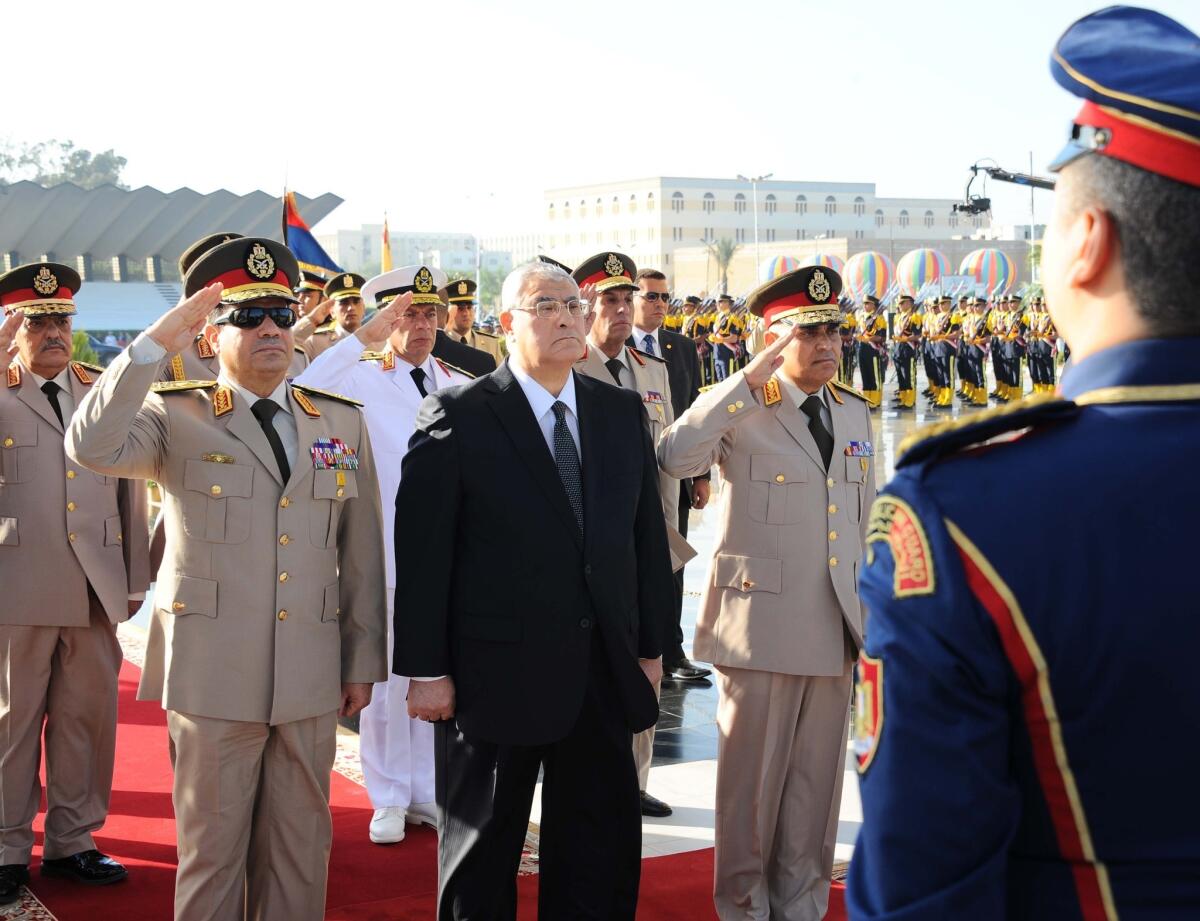Cutting aid to Egypt’s generals

- Share via
The Obama administration, which has been halting and conflicted in responding to last summer’s military coup in Egypt, has now decided to withhold hundreds of millions of dollars in aid from that country until there is “credible progress” toward an inclusive government. It’s the right decision.
Ideally, the decision to block $260 million in cash assistance and suspend the delivery of tanks, helicopters and other hardware would induce Egypt’s generals to relent in their scorched-earth campaign against supporters of the deposed President Mohamed Morsi. But even if the cutoff doesn’t incline the military to moderation, as many suggest it will not, it nevertheless sends an important message of condemnation, not only of the coup that ousted Morsi but of the repression that has followed it.
Given Egypt’s strategic position, the importance of its peace treaty with Israel and decades of cooperation between its military and that of the United States, it is not surprising that the Obama administration is reluctant to take steps that could alienate the generals in Cairo entirely. But it could have been — and should have been from the start — much more indignant in response to the overthrow of a democratically elected leader. (At one point, Secretary of State John F. Kerry even suggested that the Egyptian armed forces were “restoring democracy.”)
After the fact, the administration said many of the right things, pressing the Egyptian military to treat Morsi and his Muslim Brotherhood magnanimously and to move swiftly to a pluralist political system. In a speech at the United Nations last month, Obama said that U.S. support for Egypt would depend on “Egypt’s progress in pursuing a more democratic path.”
But progress along that path has been meager. More than 1,000 demonstrators have been killed by government forces, and hundreds of Islamist leaders and followers of the deposed president have been tossed into jail.A court has declared the Brotherhood an illegal organization — which seems likely to spur more, rather than less, violence by militants — and Morsi faces a trial on charges of inciting the murder of protesters against his government. The Obama administration would have been derelict if it had ignored those realities.
Cynics will dismiss the planned reductions in assistance as insufficient and merely symbolic, and will note that much aid to Egypt will continue, including for health and education projects and funding for counter-terrorism and security operations in the Sinai Peninsula and near the Gaza Strip. But the benefits Obama plans to deny Egypt are significant in dollar terms and in the currency of national prestige. This rebuke may not persuade the generals to change course, but it will get their attention. And the United States will have redeemed somewhat its reputation as a champion of democracy.
More to Read
A cure for the common opinion
Get thought-provoking perspectives with our weekly newsletter.
You may occasionally receive promotional content from the Los Angeles Times.






